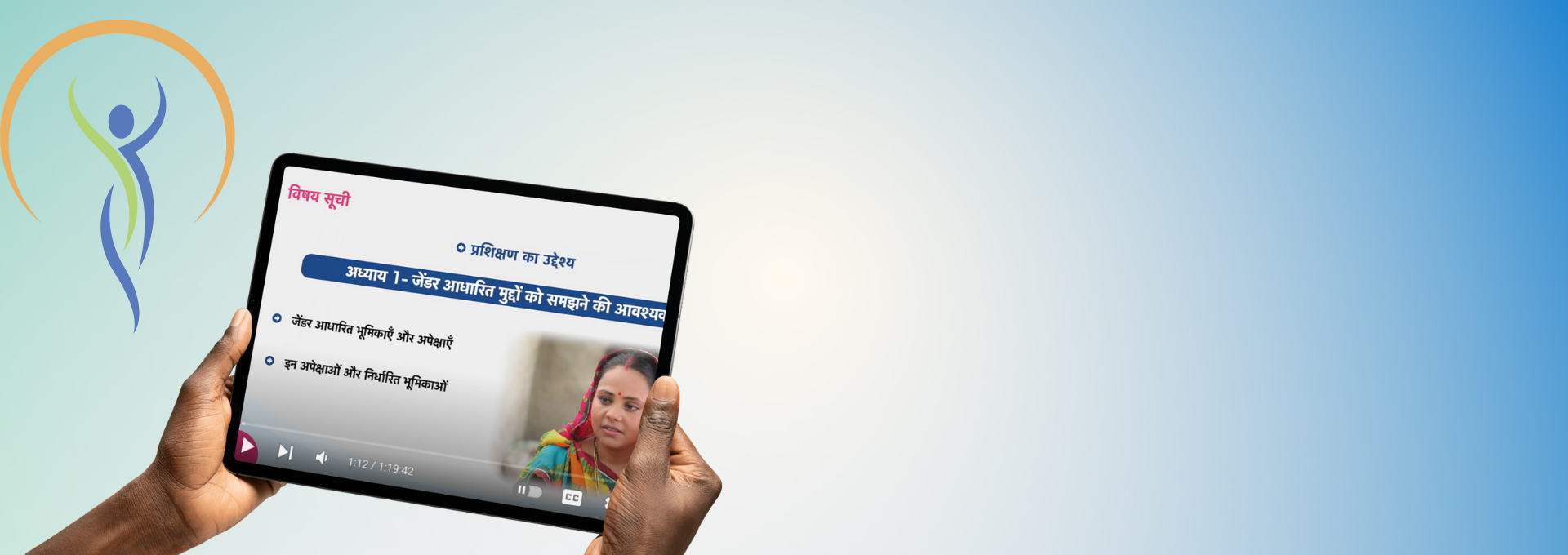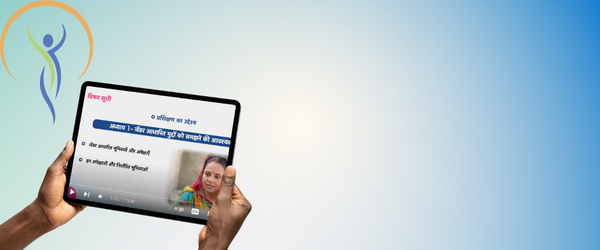

Delivering equitable and respectful care is essential to building trust between communities and the health system. In Uttar Pradesh, gender norms often influence health-seeking behaviour and service provision, disproportionately impacting women and girls, especially those from marginalised backgrounds. These inequities are further exacerbated by factors such as socio-economic status, disability, age, and geography. When left unaddressed, they contribute to exclusionary and discriminatory healthcare experiences.
To bridge this gap, the Uttar Pradesh National Health Mission (UP-NHM), with support from the Uttar Pradesh Technical Support Unit (UP TSU), has developed a framework to integrate gender responsiveness into systemic training programs for public health cadres. This initiative introduces a gender and equity e-module within key training curricula, including those for ASHAS, ANMs, Staff Nurses, CMOs, and Doctors.
The module aims to:
Grounded in real-life scenarios and supported by evidence, the e-module is complemented by digital refresher sessions to sustain engagement and learning. This training framework marks a critical step toward fostering an empathetic, inclusive, and equitable public health system in Uttar Pradesh.